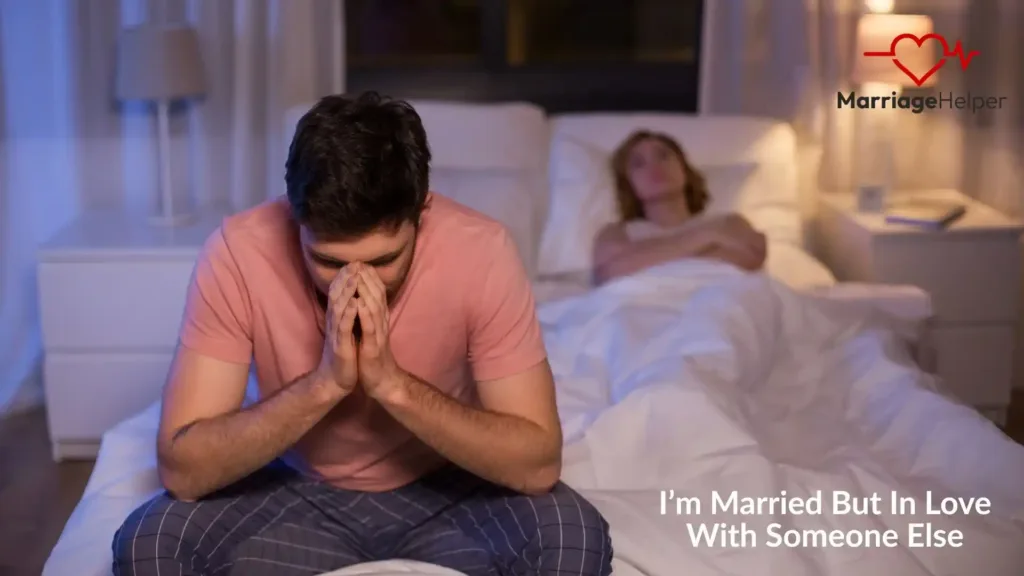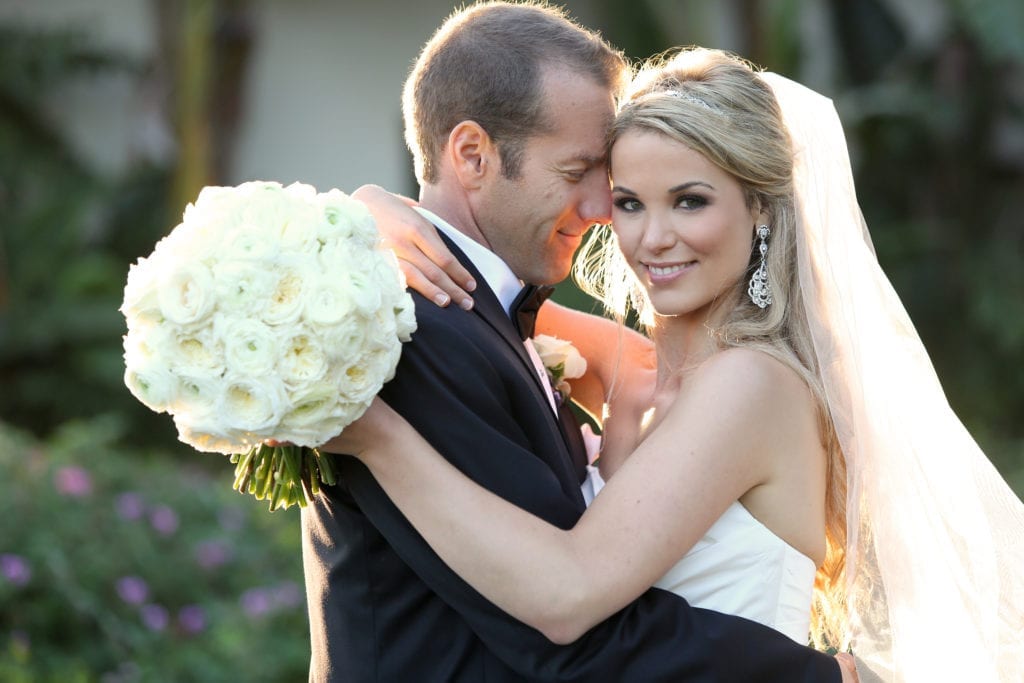Quick Answers:
Why do I fall in love with someone else while married?
Falling in love with someone other than your spouse is usually a result of feeling seen and validated by someone. Data shows that falling in love with someone else while married often reflects underlying marital needs, not moral failure.
What are the consequences of leaving a spouse for a lover?
There are short-term and long-term consequences to leaving a spouse for a lover, for yourself and your loved ones including friends and social circles.
Will leaving my spouse for my lover make me happy?
Research and experience shows that leaving a spouse typically doesn’t bring happiness, and that relationships that start in affairs typically don’t last.
About Dr. Joe Beam
Marriage & Relationship Expert
Marriage Helper was founded by Dr. Joe Beam, who began his work in academia, relationship research, and quickly becoming a leading relationship expert in America.
Watch Our Two Part Series: Married But In Love With Someone Else:
Married But In Love With Someone Else? Part 1 with Dr. Joe Beam
Married But In Love With Someone Else? Part 2 with Dr. Joe Beam
Married But In Love With Someone Else?
You probably never meant for it to happen. It’s not as if you went looking for a lover. However, things got rather intense once you fell in love with someone other than your spouse.
You’re already in what some refer to as an emotional affair. But perhaps you’ve gone further, and the relationship has turned physical.

Why do I fall in love with someone else while married?
It may be challenging to know exactly how you got into this situation.
Some are honest enough with themselves that they know step-by-step how everything came to be as it is now.
Others have more difficulty; their minds are confused because what they are doing is contrary to what they believe and value.
That doesn’t mean that the person necessarily looked for affirmation and validation from someone else. However, it captured their heart when it came, and they fell in love with someone else. If you suspect your spouse of having an affair, take the Affair Test after reading this article to get a good idea if your fears are justified.
Maybe you describe this new relationship similar to the way others I’ve worked with:
- “I’ve never been loved like this.”
- “No one understands me as well as he/she does.”
- “This is the person I am meant to be with.”
- “I can’t explain how this feels because I don’t think anyone else can understand it. It’s intense. Amazing. Wonderful.”
Most likely, your desire is not to hurt the person you’re married to but rather, to live in this new level of love that you never knew existed.
You don’t mean to harm family, friends, coworkers, church buddies, or anyone else. You desire to have, not to hurt. (There may be an exception to that if you feel that your spouse has been unkind or hurtful. If so, that degree of negativity toward your spouse probably increased its intensity after your affair began.)
What are the consequences of leaving a spouse for a lover?
If you’re married but in love with someone else, you have four potential paths before you:
- Stay in your marriage while continuing a relationship with your lover,
- Leave your marriage for your lover,
- End the affair yourself (see “How To Confess An Affair Without Losing Your Spouse”)
- Or your lover ends it.
Each possibility carries consequences; short-term consequences and long-term consequences – whether you’re a woman who’s in love with another man, or a man who’s in love with another woman.
If you choose short-term, you may decide to end your marriage for your lover. The intensity of your present emotions may make that the choice that seems most likely to make you happy.
However, long-term consequences will come with that choice; consequences involving your family, your children, your friends, your religion, your personal beliefs and values, and your spouse.
If you think that being with your lover more than makes up for any difficulties in these areas, you aren’t alone. Nearly everyone who makes that decision figures that everything balances out because they are deeply in love with someone else in the end.
Unfortunately, it rarely, if ever, turns out that way.
| Decision | Short-Term Consequences | Long-Term Consequences |
| Stay in the marriage while continuing the affair | Temporary emotional escape or excitement; ongoing secrecy and anxiety; divided emotional investment; increased guilt and inner conflict | Erosion of trust and emotional safety; increased likelihood of discovery and deeper relational trauma; difficulty forming secure attachments; long-term damage to self-respect and relational integrity |
| Leave your marriage for your lover | Relief from internal conflict; sense of certainty or “finally choosing”; intense emotional bonding with the lover | High risk of instability as novelty fades; unresolved relational patterns often repeat; loss of trust foundation (affair-origin relationship); long-term regret over permanent losses |
| Leave your lover | Emotional pain and grief; withdrawal from emotional dependency; confusion and discomfort | Greater clarity and emotional stability; opportunity to rebuild trust and integrity; healthier relational patterns over time; increased capacity for genuine connection |
| Your lover leaves you | Shock, rejection, and loss; emotional destabilization; heightened loneliness | Forced emotional reckoning; opportunity for growth and realignment of values; potential for rebuilding trust and healthier relationships if addressed intentionally |
What Does the Data Reveal About Being Married But In Love With Someone Else?

In my two decades of helping couples navigate crises, I’ve found that being married but in love with someone else is far more common than most people admit.
According to Infidelity Stats 2024 from MCooperLaw:
Nearly 20% of married men and 13% of married women report infidelity—an average of roughly 16% of married couples admitting to unfaithfulness.
This data shows that falling in love with someone else while married often reflects underlying marital needs, not moral failure.
When you’re unhappily married and in love with someone else, the first step is to pause and look inward:
- Is it wrong to be in love with someone else? Feelings themselves aren’t unethical—what matters is how you act on them.
- Two timing someone in a relationship often stems from unmet emotional needs, so understanding those gaps in your marriage can guide your next steps.
Are You Married But Constantly Thinking About Someone Else?
Your emotions are intense now, but they won’t be forever. They could very well be limerence–read here about the definition of limerence.
Within a couple of years, if not before, you’ll discover that the Cinderella or Prince Charming you’re in love with isn’t quite as wonderful or perfect as you think.
In the ecstasy of new love, people overlook flaws, quirks, and problems in the other or the relationship. When that emotion evolves, as it must and will, you’ll start to be bothered by things that never bothered you before. You will discover that Cinderella and Prince Charming exist only in fairy tales. The rest of us are flawed and, at times, hard to live with. (See the article, “How Long Do Affairs Last?”)
Repeatedly, those who left their spouses for a great love come to me after a few years and say they wish they could do it all over again.
This time they wouldn’t abandon their marriage but would figure a way to work out their marriage problems. They would not expect their children NOT to be negatively affected by the divorce.
They would look deeper into their hearts to see that their beliefs and values are part of their very identity and realize that to live in contradiction to them would lead them to become someone entirely different than they were. Those people would admit that there is never a “happily ever after” and that leaving one relationship for another is trading one set of problems for another.
In short, they would have stayed in the first marriage and done all they could to make it work.
Unhappily Married And In Love With Someone Else? Make The Right Decision
Though logic doesn’t reign for you at this moment, please attempt to silence your emotions temporarily. Momentarily see past your feelings into your future. At the deepest level of your being, what do you honestly expect it to be ten years from now if you abandon your marriage, maybe destroy another in the process (if your lover is married as well), and violate your core beliefs?
Happiness?
Based on my observations of and work with thousands of people, I can tell you that it is extremely unlikely from a purely logical, statistical vantage point.
You can pursue four potential paths if you are married but in love with somebody else. And two likely results will come based on which direction you choose.
You need to view it in a 10-10-10 manner, which means you need to think about how much your decision will affect you not in just in 10 days, but 10 months, and even in 10 years. Your decision will affect your lover, spouse, kids, and many other things.
If you didn’t know, I was once married but in love with someone else. I was involved in a passionate, “madly in love” relationship with another woman, and I decided to divorce my wife to be with the other woman. I did not come back and ask my wife to take me back until three years later, and we’ve been remarried now for several years.
But when I mention the fact that my lover left me, some people say, “Ah, the reason you think the way you do is because she left you. If she had stayed with you and you guys had gotten married and were happy to this day, you’d have a different view of this.”
My Expert Take on Emotional Connections and Marital Distress
Over the years, I’ve learned that emotional connections don’t always respect the boundaries we set. When you find yourself falling for someone else while married, it’s almost never the root problem—it’s a signal that something deeper in your relationship needs attention. As a sexologist and the founder of Marriage Helper, I’ve seen firsthand how these attractions often point to unmet emotional needs rather than moral failure.
Here’s what I advise:
- Self-reflection: Take time each day to journal about what these new feelings are revealing about your marriage.
- Open dialogue: Choose a calm moment to share your inner experience with your spouse—without blame, just honest vulnerability.
- Professional support: If you’re unsure whether this is a fleeting infatuation or a sign of deeper disconnect, couples therapy can give you both the tools to explore and heal.
People thought, if it were up to me, I’d still be with the lover.
And you know what? I think it’s a reasonable question, a reasonable objection to think through. Because you see, back in those days, when I was “madly in love” with another woman, I felt intense emotions:
- Nobody ever understood me as she did
- I never had the degree of passion toward another person that I had toward her
- It was reciprocal between us
People say, “See? You left your wife for the person you truly were in love with. Therefore, unless she had left you, you’d still be with her to this day and be happy.”
And I’m assuming the people making that objection are people who feel that way right now. So, in other words, they could be married but madly in love with someone else.
Well, here’s what I haven’t said: I didn’t go back to my spouse when my lover left me. And, she didn’t leave immediately. It took her a while to do so. After that, I stayed divorced for a while and eventually had a relationship with another woman. We had an intense emotional connection.
I decided to leave that woman and ask my former wife to take me back. So it wasn’t like, “Wow. I don’t have any other options. So, therefore, I’d better go back to what I have because I don’t have anything else.” That wasn’t it at all.
And so you may say, “Well, why? Why then do you think that in most cases, leaving your spouse for the person that you’re madly in love with is going to work out to be a bad situation?”
First of all, we at Marriage Helper have been working with marriages since 1994. So that’s a pretty long time, which means we’ve worked with thousands and thousands and thousands of marriages where one spouse was in love with someone else.
We have worked with many marriages where the husband or wife was “madly in love” with someone else, to the point that, “I don’t want to be with my spouse anymore. I want to divorce them, and I’m going to go be with my lover, and it’s going to be happy ever after.” And, I can only think of one that got close to that out of the thousands we have seen.
Now, I realize that I can only think of one when I say that. If you’re in this situation, you might be thinking, “Well, we’ll be the next one. Therefore, everything you have said or are about to say will not apply to us because we will be the exception to the rule. It’s going to be amazing for us.” And that’s precisely how I felt and what I would have thought at the time.
What Are Relationship Stages?
The first thing I know from my own experience, but also from the experience of thousands and thousands of people we’ve worked with, is that the relationship with this person you’re now madly in love with will change, no matter what you do. If you decide to go back to your spouse, it will change, although those feelings will not immediately disappear. If you choose to divorce your spouse and be with that person, it’s still going to change. And you say, “Why?” Well, because all relationships do.
You see, there’s an early stage, sometimes referred to as infatuation, where you have intense emotions toward each other. But as with all relations involving romance, they go through phases and at some point begin to diminish and change into a different kind of love that does not have the ecstasy.
You see, here’s the thing. If you are madly in love with another person, it’s a fantastic sensation. Like, as I’ve said earlier, “Nobody understands how I feel except that person. Nobody’s ever felt what I’m feeling except that other person. I can’t even explain it to anybody else.” I know, it’s euphoric. But, you see, that’s what you feel today.
It has to change if you look at it from an anthropological standpoint, even a biological standpoint. People in that intense relationship experience a set of overpowering emotions.
- It’s most likely affected your productivity.
- You do a lot of daydreaming about the other person.
- About what the future’s going to resemble. You imagine it’s going to be this, and imagine it’s going to be that.
- Your thinking could even be obsessive.
We Want You To Consider Reaching Beyond Your Emotions
You see, you may be working off of what you’re feeling today. So if you decide to give up your marriage, give up your relationship with your children if you have them, to end things with your spouse because of what you feel today, think about, what are you going to feel tomorrow?
I’m not saying feelings immediately and automatically go away, but they will subside.
In the relationship you have now, if you felt this kind of ecstasy or anything even close to it when you were dating, and then you finally got married, those emotions did subside over time. Now, they transitioned to a different kind of love, maybe, but they did lessen.
And the sexual relationships. I mean, if you’re having sex with a lover, you probably are thinking, “It’s amazing. And it’s going to be like this tomorrow, the day after that, the year after that. It’s going to be the most amazing sex for the rest of my life.” But, unfortunately, that’s not the case.
We know about “sexual habituation,” which means that any couple, no matter how intense their emotions are for each other, experience a change in the level of intensity in their sex life after a couple of years.
Think about your marriage. It definitely changed, did it not? Sexual habituation means that you become so used to each other, what’s going to happen next, who’s going to do what, and who will say what.
You’re thinking, “Oh, no, no, no, no. No. That might happen to other people, but it’s not going to happen to us. We’re different.” Well, in one sense, we all are different. We all are unique. There’s no doubt about that. But one thing about statistics, and I know you’re not a statistic, is that statistics give us insight into human behavior.
Joe Beam Experienced This Change in His Feelings
I say this because these feelings changed with my lover and me. And yes, to the point where she left me. So you think, “Okay, it’s bitter, sour grapes because she abandoned you.” But remember, I did develop a relationship with another person and had a very intense relationship, and I still decided to leave her.
How Do My Actions Affect Others?
You need to begin to think about how your actions affect other people. For example, think about what you do to your spouse if you leave them for another person. They will be hurt unless they’ve already checked out and left you.
- They’re going to feel hurt because you rejected them, but they’ll still love you. (There can come a time when that love ends, I understand that, but they’ll be deeply hurt.)
- They’ll feel rejected; they’ll go through their issues of self-esteem, like, “How can I not compare to her? Why is she so much better than I?” or, “What does he offer that I can’t offer you?”
- They’ll start questioning themselves, and their future will be affected by your abandoning them.
You say, “Ah, she’ll be happy, he’ll be happy, they’ll find somebody else. They’ll get married, and they’ll be wonderful.” Maybe they will get married again. It’s not a guarantee they’ll get married again, but there’s a possibility they might be married again.
But because we deal with marriages every day of all sorts, people in their first marriages, second marriages, third marriages, even somebody in a fifth marriage, understand that the hurt you carry from whatever previous relationship affects how you operate in another relationship.
You might think, “Well, it doesn’t matter. My spouse can go ahead and live as they want to. I don’t need to stop and think about her. He’s not my problem. She’s not my problem.” I’m assuming that at one time, you cared about what she felt, about what he felt. If your intense emotional connection to this new person is so powerful that you don’t care what your spouse feels now, what would that possibly say about the way you’re thinking?
You may be doing what I did. I vilified my wife. What I mean by that is I turned her into the villain, talked about how evil she was, all the terrible things she did, how she was getting what she deserved, and fully believed all those things when I was saying them. But deep down, I knew she was a good woman. She didn’t deserve what I did to her. I didn’t want to feel guilty about the pain I was causing her, just like you may not want to feel guilty about the pain you’re causing your spouse. But if they care about you, you know that you are hurting them by leaving them for another person.
How Will Leaving My Spouse Affect My Children?
And not just your spouse, but your kids. You may love your children deeply. I never quit loving my children deeply through the stuff I did. And I was part of the process that brought them into this life. So there are certain obligations that I have toward these kids. Similarly, if you’re a mother, you have certain obligations toward your kids because you brought them into existence.
Now, think about this. Even if things had worked out with my lover, would that mean I had no more obligation to my children? If you’re thinking, “Well, the kids are resilient. They’re fine,” kids are resilient. And I’m not saying it would have destroyed their lives, but it definitely will affect them.
Even though my wife and I eventually got back together and remarried, and my children and I have wonderful relationships to this day, I can see the effect. For example, one of my daughters still has fears of abandonment, not because of anything her husband did, but because of what I did all those years ago.

In a workshop we provide for marriages in crisis, people will tell stories about their childhood. Inevitably, one or two of them will mention how their parents’ divorce affected them to this day. Then interestingly, just a little while later, somebody who was sitting there, watching them, heard that pain and that agony will say, “Divorce doesn’t affect kids at all.” And I’m going, “Did you not hear what they just said?” And then I realize, no, they didn’t, because they are so focused on their lover and what they feel at the moment that they don’t allow themselves to hear the responsibilities parents have to kids (and how divorce affects kids).
I know, or at least I’m assuming, if we put your lover right here and your kids right there and said you’ve got to choose between the two of them, some of you would say, “I choose my children.”
But what if you were to say, “Well, if I had to choose between my kids and my lover, I’d pick my lover.” If that’s how you feel, that’s how you feel. I’m not even trying to beat you up for it. I’m just saying you might consider the impact on your kids, how they feel about themselves, how lovable they are, and the way they’re going to view future relationships.
You May View Your Lover With The Halo Effect
Amid passion, you may experience a “halo effect” toward your lover. That means you don’t tend to see their flaws. This “halo effect” happens when people feel incredible, powerful emotions toward another. Or if we see the flaws, we minimize them.
It happened for me, and it happened for my lover. It also happened with thousands and thousands of couples. And, it does finally begin to subside; that halo effect goes away. You can start to see flaws in the other person because everybody is imperfect, including you, which means they will see your flaws.
What’s the Most Important Thing For You?
Do you know what I wasn’t thinking about during my affair? What it was costing my lover to be involved with me. What was she losing? How did it affect her other relationships, her reputation, her self-concepts?
I wasn’t thinking about anything but the two of us being together for the rest of our lives and how happy we would be. And finally, when those emotions began to subside, my lover saw everything she’d given up to be with me, and she became distraught. It didn’t happen overnight; it gradually occurred. But when it did, who do you think she was angry with? It wasn’t anger at herself because of the decisions that she had made. It was anger at me.
Now, that’s not an anomaly. That’s not unusual. We see that repeatedly when intense emotion begins to fade. Especially if the other person had to give up something for you; reputation, relationships, religion, occupation, family, whatever it might be. And if you’re being honest with yourself, was it fair to ask them to give up everything for you?
And even yourself. Even if you wound up together, it’s not going to be like it is now. The odds of you winding up together are incredibly slim. Most people who leave their spouse for another person never marry that person. Those emotions fade before it ever gets that far and so they don’t wind up being married to each other.
The ones that do marry each other have an exceptionally high divorce rate. You say, “Wait a minute, but some of them do make it?” Yes, some of them do. The ones I know that have made it still have regrets about what they did, and they have regrets about the pain they caused other people and the pain they caused themselves. You see, your actions determine your future. So I guess what you need to be asking yourself is: What’s the most important thing for you?
So What If Dr. Beam Ended Up With His Lover?
Would I be “all for” these things if I had wound up marrying Sally Sue and we lived “happily ever after”?
Well, I know enough about my heart now to see that I was so focused on her at that point, “I want to be with her, life will not be worth living if I’m not with her, she’s the most amazing thing that ever happened to me,” and she was feeling the same kind of things about me. But with time, those focuses would begin to change. Those emotions would start to modify.
- Would there have come a time when I would have looked at the pain my children were experiencing and asked myself, “Did I do that because of my selfish desires?”
- Would there be times I would look at my wife, and whatever happened to her and her future, and felt some twinge of, “You know, a lot of it has to do with what I did to her when I left her?” Yes.
- And would it also be about me? You see, I finally left the second lover, went back, and asked my wife if she would consider taking me back because I realized that I became a different person by following these actions. My values and beliefs had changed, which meant that I had changed. One day, I realized I wanted to be me again. I want to be that guy again, only better than he was before.
Well, I’m not the only person that has felt this. I’m not the only person that has been through this. But, again, we’ve dealt with thousands of people.
Let me refer to a song by Bob Seger called “Against the Wind.” Unfortunately, I can’t put all the lyrics up here for copyright reasons, but I’m sure you can find them online. When he sang, Seger talked about this woman named Janey, the queen of his night. He spoke about how they shared secrets, and their love was like a wildfire that was out of control. And he talked about her holding him so tight, promising him that it never would end. Remember that other line? “I wish I didn’t know now what I didn’t know then.”
What’s that, Bob, it ends? And what does that do to you? You begin to have regrets. He phrased it like that from that point on in the song. He said he sought shelter again and again. In psychology, it’s called a “focusing illusion.” It means you think when I have this one thing, I’m going to be happy. For example, a focusing illusion can be: “I win the lottery, I’ll be happy.” But when you’re married but in love with someone else, thinking, “I’m going to give up my spouse. If I have children, give them up as well. I can be a good parent and end that marriage.” If you make those decisions based on what you feel now, it doesn’t reflect what you’re going to think in the future:
- Decisions Have Consequences
So would I, if I had been with my lover, be happy now and encouraging other people, “Leave your spouse, go marry whoever you want to, you’ll have a great life with that person. Don’t worry about the consequences?” No, I wouldn’t be saying that. Even if I wound up with her, I’d be talking about how decisions I made have consequences not just to me but also to people around me.
- You May Not Clearly See The Outcome
Even if I wound up with my lover, I would still say that now, but I wouldn’t have seen it then because all I could think about was how I felt.
- Think Long Term
Is it all about me? Is it all about you? No. I want you to be happy, I do, but not based on something that you think will last forever. If you’re going to make your decisions, make your choices thinking, “What’s the long term, what’s the right thing to do.” It’s not all about being in love with someone else, and it’s always your choice.
Hey, I’m all for love. Love that’ll last. What about you?
Be sure to subscribe to our YouTube channel so you can get all our videos. If you want to talk to us about, “Hey, how can I end this?” or, “How could I possibly put my marriage back together? How could I ever be in love with my spouse again after feeling what I felt for this man or this woman?” If you want to look into that, we can help you with it if you contact us.
We Can Help
At Marriage Helper, we understand the pain and challenges you may be facing in your marriage. For over 20 years, we’ve helped countless couples navigate difficult situations just like yours, including affairs, limerence, control, loss of connection, lack of communication, sexless marriage, and conflict. Your reality doesn’t have to include being married but constantly thinking about someone else – we can help you change your situation.
Our intensive Marriage Helper Workshop has a remarkable 70% success rate in saving marriages, even if your spouse is reluctant or unwilling to participate. And here’s what’s even more encouraging: 99% of participants recommend our program to others, regardless of their ultimate outcome.
We believe in the power of healing and transformation, even when you feel you’re in love with someone else other than your spouse. Our workshop will equip you with the tools to understand yourself, your spouse, and your marriage on a deeper level. You’ll learn practical strategies to build stronger communication, reignite intimacy, and create a healthier, happier marriage for the future.
Don’t let hopelessness take hold. You don’t have to be unhappily married and in love with someone else. We are here to help you rescue your marriage, no matter how difficult things seem right now. Contact Marriage Helper today and take the first step towards a brighter future together – learn more about our marriage saving workshops.
WE WANT TO HELP
At Marriage Helper, we’ve walked alongside thousands of couples and spent decades researching what really works to strengthen marriages. Our goal is to provide you with practical, research-backed guidance—like the free information you’ve found on this page—because we genuinely care about helping marriages thrive. If you’re ready to go deeper, our workshops, membership, and one-on-one coaching offer even more tools, insights, and personalized support to help you navigate your unique journey and create lasting change in your relationship.
Our intensive Marriage Helper Workshop has a remarkable 70% success rate in saving marriages, even if your spouse is reluctant or unwilling to participate. And here’s what’s even more encouraging: 99% of participants recommend our program to others, regardless of their ultimate outcome.
Learn more about:





